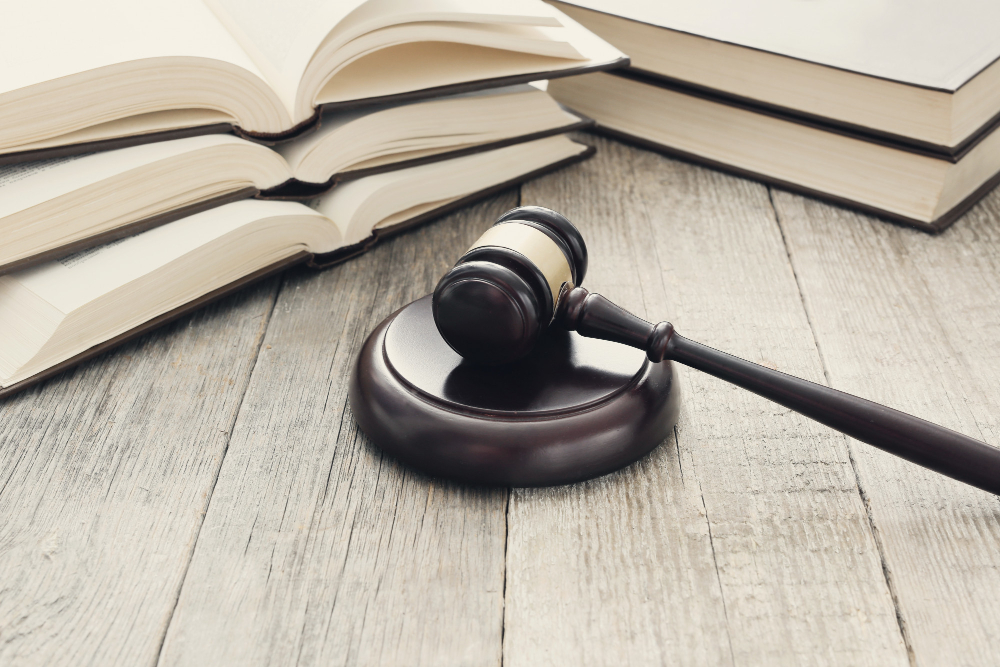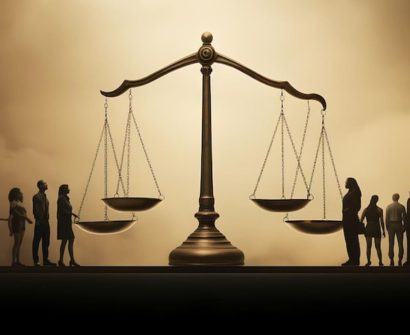
Within the context of human rights, a form of activism prisoners often find themselves disabled and their opinions are muffled out in the cacophony of public discussion. People battle in the cramped conditions of prisons not only to cope with the fallout from their actions but also with the complicated nature of their rights, or lack thereof. The narrative of the silent struggle for rights for prisoners can at times be shrouded by prejudice and stigma from society. However, this is a tragedy that needs to be heard and reacted to.
prisoners: Who Are They?
- According to the Model Prison Manual 2016, a prisoner is somebody who is detained in a facility on the authority of a competent authority. This indicates that an individual detained in jail or prison because they have committed a crime that is against the law is considered a prisoner.
- In India, the terms “prison” and “jail” are synonymous. Prisoners are those who are convicted as well as those who are awaiting trial.
Rights of Prisoners
The first set of laws governing prisons in India was passed by the Prisons Act of 1894. This statute contains provisions meant to guarantee the protection and well-being of all rights of prisoners in india, convicts as well as those awaiting trial. The following are some of the basic rights of prisoners that this act grants to Rights of Prisoners:
- Section 4: Right to Adequate Accommodation
In accordance with the guidelines outlined in the Prisons Act of 1894, inmates are entitled to housing. In addition, the Model Prison Manual of 2016 emphasizes that every prison’s living conditions, including those related to housing, food, clothing, sanitation, cleanliness, and inmate medical rights, should respect inmate dignity.
- Section 7: Right to Safe Residency and Housing for Overage Prisoners
If any jail is too full and it is not practical to transfer the excess undertrial prisoners to other facilities, then temporary prisons ought to be established to provide safe haven and custody. This is particularly important when epidemic illness outbreaks occur inside prisons.
- Section 27: Prisoner Separation
women prisoners must be housed in separate buildings or different parts of the same structure in a jail that houses both male and female inmates. The purpose of this arrangement is to keep them from coming into contact with, talking to, or seeing male inmates.
- Section 31: Sustaining Prisoners with Private Funds
Both civil and criminal inmates awaiting trial have the right to self-sufficiency, which includes the ability to buy or receive food, clothes, bedding, and other requirements from private sources during business hours. The Inspector General’s approval and inspection are required for this.
- Section 29: Solitary Confinement
inmates rights in prison in solitary confinement units need to have constant access to communication with prison staff. The Medical Officer or Medical Subordinate is required to visit prisoners in solitary confinement for longer than twenty-four hours, regardless of the reason for the visitation, at least once a day.
constitutional rights of prisoners
- Right to Life: Everyone’s right to life is safeguarded by Article 21 as a fundamental and unalienable human right. It shields people from capricious acts or judgments that might cause fatalities. This right includes the right to a dignified existence in addition to the right to a physical one. It restricts the state’s capacity to take a life if the right legal process isn’t followed.
- Right to Personal Liberty: Article 21 also protects the right to personal liberty. It ensures that an individual’s freedom and physical autonomy cannot be arbitrarily restricted by any authority, including the state. This includes protection against unjustified arrest, detention, or imprisonment. A person’s right to personal liberty is guaranteed by Article 21 and is an essential part of their freedom and dignity.
human rights in prison: Case Laws
- In the case of State of A.P. v Challa Ramkrishna Reddy & Ors., the Indian Constitution protects each and every prisoner’s fundamental rights. The right to life and other essential rights guaranteed by the Indian Constitution are retained by all prisoners, regardless of whether they are found guilty or not, according to the Honourable Supreme Court.
- In the case of T.V. Vatheeswaran v State of Tamil Nadu, it was held that every Indian citizen is granted essential rights under Articles 14, 19, and 21 of the Indian Constitution; these rights also apply to prisoners. The Honourable Supreme Court emphasized that both convicts and non-prisoners are entitled to fundamental rights under Articles 14, 19, and 21 of the Constitution.
As per human rights and prison, the idea that incarceration does not entail the loss of fundamental rights has been upheld by the Supreme Court. According to official Supreme Court rulings, prisoners’ fundamental rights are nevertheless enforceable in spite of any restrictions placed on them as a result of their detention.
Therefore, it may be argued that prisoners retain all of their fundamental rights while they are behind bars. Articles 14, 19, and 21 of the Indian Constitution inferentially protect prisoners’ rights, even though they do not state this clearly and explicitly. In addition, the Prisons Act of 1894 includes provisions for the security and well-being of inmates.
Rights of Prisoners FAQs
- Do prisoners have fundamental rights?
The convicts are also entitled to these rights. In the 1983 decision of T.V. Vatheeswaran v. State of Tamil Nadu (2 SCC 68), the Hon’ble Supreme Court ruled that convicts have the same access to fundamental rights that freemen do under Articles 14, 19, and 21 of the Indian Constitution.
- What are the human rights of under trial prisoners?
They are entitled by the Constitution to a fair trial that is conducted in a timely manner. Right against inhuman treatment: People are entitled to dignified treatment and are not allowed to endure torture or other cruel treatment of any kind.
- What is the law related to prisoners in India?
The current ‘Prisons Act, 1894’ is about 130 years old and dates back to the time before independence. The primary goals of the Act are the detention of offenders and the upholding of law and order in prisons. The current Act makes no mention of prisoner reform or rehabilitation.
- What is the status of rights of prisoners?
Because all convicts are valuable human beings with inherent dignity, they should all be treated with respect. There shall be no discrimination in the application of the regulations based on any factor, including race, colour, sex, language, or place of birth.
- What is reality of prisoners rights in India?
Regardless of their status as a detainee, undertrial, or criminal, an inmate must be treated with dignity and as a legitimate citizen with rights, according to the Supreme Court of India. However, in reality, the prison administration does not follow this line of reasoning.
The reputable Jaipur Online rjs coaching program “Jyoti Judiciary Coaching” aids students in getting ready for the RJS exam. A systematic approach to RJS test preparation is made possible by Jyoti Judiciary, the top offline and online RJS coaching program in Jaipur. Their curriculum has been carefully designed to cover all the subjects and courses required for passing the Rajasthan Judicial Service Examinations.
- Which coaching is best for judiciary?
The most effective judiciary coaching in Jaipur is provided by Jyoti Judiciary Coaching. The objective is to create a comfortable learning environment for the students. It makes the difficult task seem easy, which increases the likelihood of achieving the desired outcome. The objective at Jyoti Judiciary is to give students the best possible education possible. The Institute pledges to use every resource at its disposal to provide you with the finest preparation for the Judicial Services entrance examinations.
With the goal of giving students the best coaching available for law entrance exams including the CLAT, AILET, and various other numerous state judiciary exams, Jyoti Judiciary Coaching, India’s Finest educational Platform, was established. Come enrol now with Jyoti Judiciary!
For any latest news, legal topics, judiciary exams notifications, patterns, etc watch Jyoti Judiciary’s YouTube channel for legal videos for any updates at https://youtube.com/@jyotijudiciarycoaching4852?si=2cwubh9d2A9urwJf










